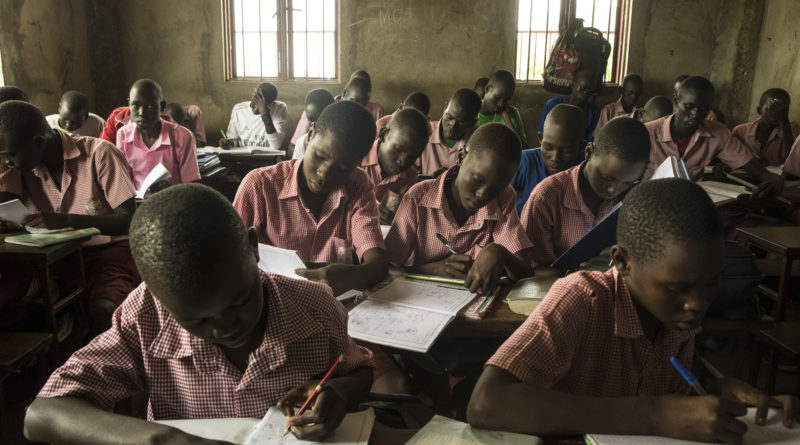Mario Novelli is a professor of the Political Economy of Education at the Centre for International Education, University of Sussex. Professor Novelli talks about a new rigorous literature review on the political economy of education systems in conflict-affected contexts of which he was the lead author. There has been an increased interest in political economy as a recognition that development programmes have not been reaching their full potential. Not because of the technical failures of policy and programming but because policies and programmes interact with local communities, and national and international factors that change the patterns of those processes. There is also an increased interest in conflict-affected contexts. These contexts are some of the most challenging, and good political economy analysis is really important for policy success.
The review identifies clear discrepancies between what is going on in terms of education policy in conflict-affected contexts and what needs to be done, particularly to promote peace building. One of the key findings was that the global security and peace building agenda often marginalises education. Security, democracy and the promotion of markets are often seen as primary objectives. Education is often seen as something that can come later.
Another issue identified in the review was a disconnect between peace building and conflict practitioners, and education specialists. Peace building specialists are often coming from an international relations background and educators are often not well-trained in issues around peace building. There is a need to bring these two communities much closer together. In the literature there is a disconnect between the humanitarian, the development and the security sectors. They are working in the same context but with very different agendas which often undermine the potential of the peace building role of education.
On policy formulation the review finds a disjunction between a global education agenda and the particular peace building needs of conflict affected societies. Policy was almost generic, which may work in some contexts but may actually inflame the situation in other contexts. Political economy sensitive analysis is needed to tailor policy to different policy-affected contexts. Some of the framing of education policy recommendations fails to account for different cultural, social, economic, political priorities and preferences.
Inattention to local agency and local voices was highlighted in the review. This shows the reality of the range of different imbalances of power between different actors in this environment; local, national and global. Several countries recovering from conflict rely on sources other than the government for half of their education budget which threatens the independence and autonomy of education policies.
The report notes a wide range of approaches to political economy which would uncover different aspects. More critical political economy that comes from dependency theory is more likely to focus on international factors and actors viewing the problem in the international community and in unequal global relations. Political economy research from more orthodox approaches often sees the problem as beginning and ending inside the country itself and sometimes fails to recognise the role of international actors and companies. The report highlights the importance of understanding the underpinning philosophy of these political economy approaches.
One problem for policy-makers is that political economy analysis makes issues more complicated. The research may uncover things that policy makers cannot change. However, it is still important to understand the complexity of these issues and the range of actors that are involved so that they can at least attempt to make better policy that fits the local and national context.
A lack of country-level systematic research on the political economy of education in conflict-affected contexts was identified. Reports need to be done consistently over time because circumstances change.


